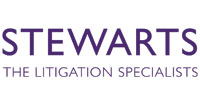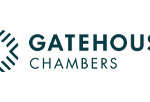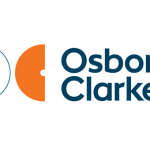Tim Symes and Alice Glendenning discuss claims against valuers, auditors and banks in a professional liability context, and where such claims will go in a post-pandemic litigation landscape
Recessions precede a rise in litigation. Parties suffer losses arising from deals entered into in more buoyant times, businesses default on their loans, enter insolvency and fraud is uncovered. This happened after the global financial crisis. When faced with a severe liquidity crisis, banks stopped lending. Without access to finance, hundreds of thousands of businesses failed.1
The coronavirus pandemic has put the UK economy into the deepest slump since records began, with the country in recession for the first time since 2008.2 It is expected that this crisis, as with other recessions before it, will produce a further surge of claims linked to a diminution in asset value and business default.3
The two crises are markedly different in their causes: the former, market participants and inherent banking system weakness,4 the latter, the financial equivalent of an asteroid hitting earth.5 They are also likely to differ in the intensity and duration of their economic effects. The UK economy took five years to return to pre-2008 levels, whereas the UK saw the fastest growth (7.5%) in 2021. Whether this growth is set to continue longer term is uncertain.6 7 However, it is hoped the gargantuan sums spent in government support and the temporary insolvency measures introduced to protect businesses from creditor action will have diminished some of the longer-term financial consequences and speed recovery.
There will be a delay before we see the full effects, for better or worse. Following the withdrawal of government intervention, certain businesses will recover while others fail.8 Pressures on liquidity will mean companies will not be able to recover without restructuring or entering formal insolvency.9 Borrowers, lenders, and creditors will commence litigation against solvent, insured professionals to seek to lay blame and recover losses. With experienced claimant firms, developed case law and a matured litigation funding market, we can expect claims to be issued sooner and in substantially greater numbers than following the 2008 crisis.10
Events are already in motion. In January 2022, company insolvencies rose back to pre-pandemic levels.11 Many more insolvency filings are expected, particularly in the hospitality and retail sectors.12 More insolvencies will naturally mean more litigation.
To make matters worse, the invasion of Ukraine and the unprecedented sanctions against Russia will take their toll on the West as well. We are already seeing that across markets globally. In addition, Russia has itself applied ‘sanctions’ by denying foreign creditors from an ‘unfriendly state’ repayments in relation to loans, credits and financial instruments.13
This article discusses three forms of defendant in a professional liability context: claims against valuers, auditors and banks. It offers a brief overview of the current state of play in those fields before indicating where we expect such claims will go in a post-pandemic litigation landscape.
Claims against valuers
Following 2008, in a declining market, the value of properties dropped. As borrowers defaulted on their loans, repossessions surged. When lenders discovered that secured properties were worth significantly less than they had lent, they challenged the integrity of the valuations through professional negligence claims.
After the pandemic, we will likely see a similar increase in professional negligence claims against valuers. Valuers were not always able to physically inspect assets and had less comparable data due to the unprecedented circumstances. As a result, they were obliged to rely more heavily on metrics such as rent collection statistics and professional judgment over fact.14 This will have led to valuations being made beyond the reasonable margin of error that do not stand up to scrutiny. The Royal Institution of Chartered Surveyors was alive to this at the start of the pandemic, issuing guidance on the valuation uncertainty it would cause.15 It advised members to insert material valuation uncertainty clauses where appropriate to ensure clients understood they had been prepared under unprecedented circumstances and with an absence of relevant or sufficient market evidence.
The work from home regulations and successive lockdowns led to a change in the demand for office space and subsidiary services. While there is a steady return to the office, demand is of a high specification, and older offices may no longer be fit for purpose.16 Lenders may struggle to sell commercial premises and look to valuers to recoup their losses.17 The shift away from commercial, business and retail may restore value to these assets. Consider the closure of the House of Fraser stores and the government’s move to expand permitted development rules to enable the conversion of commercial, business and services premises to residential with minimal permissions.18 However, borrowers and lenders might still find themselves with a less valuable asset than bargained for when city centres were booming. Valuers might find themselves valuing assets with fewer comparables as one-off properties are converted to different uses.
Succeeding in a claim for valuation negligence is not straightforward. A valuer will only normally be negligent for valuations that fall outside the reasonable margin of error, which varies across different property types. It is anticipated that in the extraordinary circumstances during and following the pandemic (including remote working, fewer market comparables in the face of limited supply, increased changes of use and a distorted market), the acceptable margin for error may widen. This is particularly so where a ‘material valuation uncertainty’ clause has been included in the valuation report.19
In any UK formal insolvency, it is the job of the insolvency officeholder to realise assets for the creditors. That includes legal claims. Frequently, the claims identified will be against the directors for wrongdoing. But equally, claims against the company’s service providers will be identified, namely its auditors and banks.
Claims against auditors
Recent high-profile corporate collapses and accounting scandals have put the spotlight firmly on the auditing profession and, more specifically, the Big Four. Such collapses have led to claims by insolvency officeholders against KPMG on their audits of Carillion,20 Grant Thornton as Patisserie Valerie’s auditors and most recently PWC as auditors of the classic car company JD Classics Ltd.
These high-profile examples have provoked a number of reviews, including the 2018 Financial Reporting Council review, the 2019 Brydon review and the 2019 Competition and Markets Authority study.21 They also prompted the government white paper entitled ‘Restoring Trust in Audit and Corporate Governance’ in 2021. This set out a range of proposed reforms to the UK’s audit and corporate governance framework and opened questions for consultation. Following slow progress, ongoing concerns of delay and row back, proposed reforms are expected to be set out in the coming weeks. These include the introduction of managed shared audits to increase competition in the sector and the institution of a new regulator, the Audit, Reporting and Governance Authority to replace the Financial Reporting Council with greater powers to police company directors. There are concerns that the proposals, which for some cannot come soon enough, might not be in place until 2024.22
In the meantime, auditors will have been challenged by pandemic conditions and consequently the reliability of the audits. The inability to attend a client’s office may have led to increased difficulties in independently identifying the risk of material misstatement in the financial statements, whether by fraud or error, and in confirming the directors’ use of the going concern basis of accounting and company solvency.23 24 This is something the Financial Reporting Council was alive to in early 2020. It issued guidance flagging factors for auditors to consider, including:
the identification of areas where confirmation was contingent on physical presence, and the consideration of heightening the assessment of the risk of material misstatement due to fraud or irregularity;
alternative methods of hosting audit committees;
other ways to obtain sufficient audit evidence as opposed to original source documentation, and
reporting on material uncertainties in the ‘going concern’ status.25
The pandemic is expected to have proved fertile ground for fraud,26 as evidenced by reported misuse of the government financial support scheme. This is likely to impact auditors, given their obligation to obtain reasonable assurance on whether a company’s financial statements are free from material misstatement due to fraud. It should be noted that the revisions to the UK auditing standard on the responsibilities of auditors in relation to fraud (ISA (UK) 240) came into effect from December 2021.27 This confirms that reasonable assurance, while not absolute, is a ‘high level of assurance’. Also, the risk of not detecting a material misstatement due to fraud ‘may be higher than one due to error on the basis that the fraud may have involved sophisticated and organised schemes to conceal it, but that that does not diminish the auditor’s responsibility to perform the audit to obtain that reasonable assurance.’28
Claims against banks
In the last two years, the courts have contributed important case law to banking litigation. The recent developments in relation to the ‘Quincecare’ duty of care, which requires a bank to exercise reasonable care and skill in carrying out a customer’s instructions, represent an important milestone and a substantial basis for litigation for years to come. The latest in the string of cases, Stanford International Bank Ltd v HSBC Bank plc [2021], has now had its hearing before the Supreme Court. The judgment will be highly relevant to certain classes of cases against the banks and will greatly interest practitioners.
A claim in dishonest assistance is a form of secondary liability that an officeholder might pursue when a bank has assisted in, for example, fraudulent transfers or permitted a defaulting fiduciary to operate a bank account which has caused loss. For this claim to succeed, it is necessary to establish dishonesty by particular individuals at the bank, which can be a high bar to meet. That said, dishonesty can be demonstrated when an individual has ‘turned a blind eye’ to what was apparent dishonest behaviour by the bank’s customer.
This point was considered by the Court of Appeal in the Stanford International Bank case. The court held that where dishonesty is not pleaded against an individual but against a bank collectively, it is still necessary to evidence dishonesty or ‘blind eye knowledge’ against one or more individuals; to find dishonest assistance without this would be to allow gross negligence to be the basis for a finding of dishonesty. Nonetheless, despite the relatively high thresholds for these types of claims, we may well see more of them as fraud schemes emerge in the wake of the pandemic.
The next 12 months
As we exit the lag phase after the pandemic, the next 12 months promise to be very interesting. The liquidity pressures already felt by companies will be further exacerbated by the energy crisis and the war in Ukraine. This, together with the fact that litigation funding is now more accessible than ever and the availability of rapid high-value adverse costs insurance, will mean insolvency officeholders can do much more, more quickly in terms of asset recovery and realisation. The obvious attraction in suing insured professionals and banks will make them an ever-growing litigation target for insolvency officeholders wishing to bring monies back into the insolvency estate for creditors.

Tim Symes, partner

Alice Glendenning, associate
- https://www.theguardian.com/business/2020/aug/12/how-does-uks-covid-recession-compare-with-previous-ones
- https://www.theguardian.com/business/2020/aug/12/how-does-uks-covid-recession-compare-with-previous-ones
- https://www.clydeco.com/en/insights/2020/04/covid-19-insurance-professional-indemnity-article
- https://blogs.lse.ac.uk/businessreview/2020/03/28/comparing-the-coronavirus-crisis-to-2008-is-inevitable-but-theyre-quite-different/
- https://blogs.lse.ac.uk/businessreview/2020/03/28/comparing-the-coronavirus-crisis-to-2008-is-inevitable-but-theyre-quite-different/
- https://www.theguardian.com/business/2022/feb/11/lies-damn-lies-why-last-years-uk-economic-growth-cant-be-seen-in-isolation
- https://brownrudnick.com/article/you-cant-sue-a-germ-comparing-the-2008-financial-crash-to-the-covid-19-economic-crisis/
- https://www.clydeco.com/en/insights/2020/04/covid-19-insurance-professional-indemnity-article
- https://www.rpc.co.uk/perspectives/commercial-disputes/disputes-yearbook-2021-financial-disputes/?utm_source=Mondaq&utm_medium=syndication&utm_campaign=LinkedIn-integration
- https://www.clydeco.com/en/insights/2020/04/covid-19-insurance-professional-indemnity-article
- https://www.gov.uk/government/statistics/monthly-insolvency-statistics-january-2022/commentary-monthly-insolvency-statistics-january-2022
- https://brownrudnick.com/article/you-cant-sue-a-germ-comparing-the-2008-financial-crash-to-the-covid-19-economic-crisis/; https://www2.deloitte.com/ie/en/pages/finance/articles/significant-decrease-for-corporate-insolvencies-in-2021.html
- https://www.morganlewis.com/pubs/2022/03/update-russia-adopts-decree-on-repayment-in-russian-rubles-of-debt-to-foreign-creditors
- https://www.rics.org/uk/news-insight/latest-news/news-opinion/life-after-lockdown-part-7-for-what-its-worth/
- https://www.rics.org/uk/upholding-professional-standards/sectorstandards/valuation/valuation-coronavirus/
- https://www.ft.com/content/8c231f78-82c4-4028-91c4-e091b8c4a3f9
- https://dwfgroup.com/en/news-and-insights/insights/2021/3/looking-ahead-professional-indemnity?utm_source=Ceros&utm_medium=Web&utm_campaign=Ceros-insurance
- https://www.business-live.co.uk/retail-consumer/what-next-stores-left-empty-19750484
- https://www.dechert.com/knowledge/onpoint/2020/6/covid-19-and-valuations-in-the-uk.html
- https://www.theguardian.com/business/2022/feb/03/kpmg-being-sued-for-13bn-over-carillion-audit-uk-official-receiver
- https://www.nortonrosefulbright.com/en-us/knowledge/publications/9df824d4/restoring-trust-in-audit-and-corporate-governance
- https://www.ft.com/content/f33f38ea-0019-4c40-ab8c-b0009f5ca514
- https://www.frc.org.uk/auditors/audit-assurance/auditor-s-responsibilities-for-the-audit-of-the-fi/description-of-the-auditor%E2%80%99s-responsibilities-for
- https://www.kingsleynapley.co.uk/insights/blogs/dispute-resolution-law-blog/firms-brace-for-negligence-impact
- https://www.frc.org.uk/about-the-frc/covid-19/covid-19-bulletin-march-2020
- https://www2.deloitte.com/ch/en/pages/financial-advisory/articles/covid-19-operating-in-the-new-normal-fraud-risk.html
- https://www.frc.org.uk/getattachment/e48499f2-b69b-4f45-8bef-762583eab1cd/ISA-(UK)-240-Final.pdf
- https://www.frc.org.uk/getattachment/e48499f2-b69b-4f45-8bef-762583eab1cd/ISA-(UK)-240-Final.pdf














